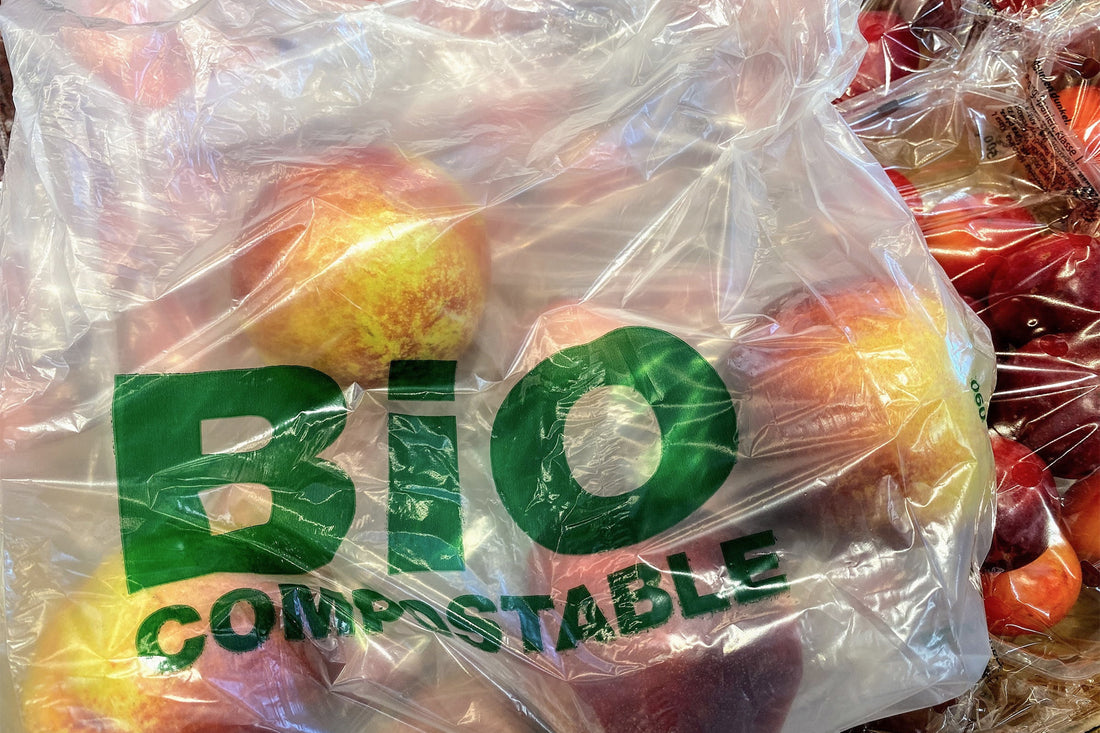As the reality of the world’s waste problem becomes clearer, corporations have repeatedly attempted to present customers with easy solutions. When customers first became aware of the environmental effects of plastic, the industry promoted plastic recycling as a solution. However, it as only resulted in more waste. While plastic may be recycled, it requires a lot of resources, the correct facilities, and a lot of money.

The next big idea? Products that are biodegradable and compostable. When discussing recycling, these two terms are frequently used interchangeably. But what exactly do they mean? Is one superior than the other? What do you need to know? Can these products ultimately provide the solution we seek?

What is biodegradable?
Simply put, something is “biodegradable” if it can be broken down by bacteria, fungus, or other biological processes. The fact is that, given enough time, lots of things are biodegradable. Plastics, in particular, have been known to take decades or event centuries to degrade organically, but they will. So, theoretically, they are biodegradable. Even diapers, notorious for staying a long time in landfills, will degrade with time.
When a packaging firm claims that their product is biodegradable, what they truly mean is that it will degrade when thrown away. The important thing to remember is how long it takes for the substance to biodegrade. When looking for green items, the shorter the period required for biodegradation, the better.

What is compostable?
I’m sure we’ve all heard of a compost heap. When you take organic materials and allow it to degrade, they provide fertilizer for your soil. Composting is the process of reusing organic waste once it has been recycled. However, compostable products are not necessarily biodegradable in a landfill. They must be placed under the proper conditions, which are frequently only found in industrial composting facilities.Compostable products are beneficial to the environment, but it is critical to ensure that your business has a comprehensive waste management plan in place. Ensure that your biodegradable waste is being disposed of at a compost facility.
What is the difference?
All compostable items are biodegradable, but not all biodegradable products are compostable. Biodegradable and compostable waste are both recycled organic waste by naturally occurring or biological processes.
The major distinction between biodegradable and compostable products is that compostable products require a specialized environment to decompose, whereas biodegradable products decompose spontaneously. Composting is often a speedier process, but only under the appropriate conditions. Both of these products are better for the environment than plastic, which may take hundreds years to degrade.

Solution or problem?
As individuals, we desperately desire a one-size-fits-all solution to life’s most pressing issues. Both biodegradable and compostable products have the potential to be an environmentally responsible solution to our world’s waste problem-but only when properly handled.Biodegradables (including compostables) cannot degrade safely in the absence of air, enough light, and microbes. Instead, methane is produced by the anaerobic (without oxygen) process that occurs in landfills. Furthermore, biodegradable and compostable products cannot be recycled since their decomposition would contaminate the other things. We can only achieve so much by emphasising reusable things. When biodegradable or compostable products appear to be the only alternative, we may carefully examine the labels. Finally, let us rely on reducing and reusing to eliminate the need for recycling entirely.

